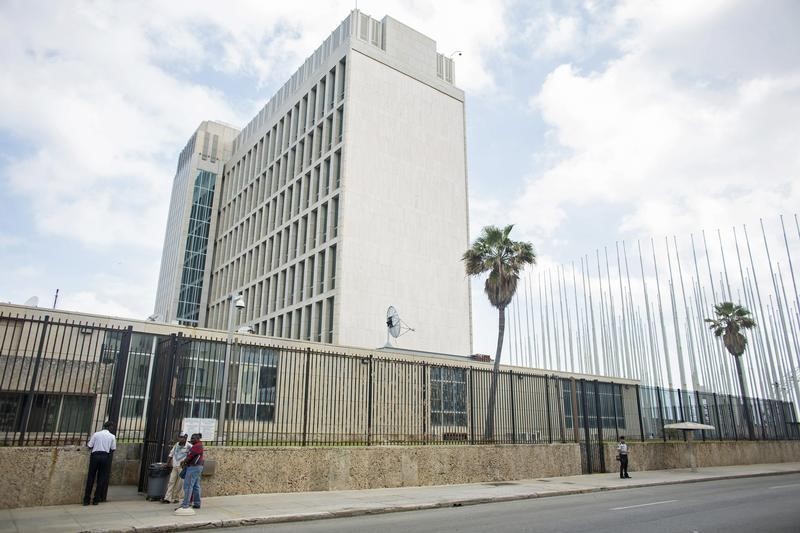WASHINGTON, Sept 13 (Reuters) - U.S. and Cuban officials met at the State Department on Thursday to discuss the mysterious health problems that have affected more than two dozen American Embassy personnel, a situation that led to a reduction in staffing at the Havana mission and a chill in ties between the nations.
"There's a briefing taking place between some of our colleagues from our various bureaus. They are having meetings with the Cuban government to discuss some of the medical issues that our people have experienced," State Department spokeswoman Heather Nauert told a briefing.
Nauert, who declined to discuss details about the meeting, said the talks involved medical personnel and experts on the situation, as well as officials from the Cuban government.
At least 26 Americans have been affected by a mysterious illness at the U.S. Embassy in Cuba with symptoms that included hearing loss, tinnitus, or ringing in the ears, vertigo, headaches and fatigue, a pattern consistent with mild traumatic brain injury, State Department officials have said.
The illnesses, which first appeared last year, were initially described as the result of sonic attacks or health attacks.
NBC News reported earlier this week that U.S. officials believe the health problems may have been caused by sophisticated electromagnetic weapons.
NBC, citing administration officials and congressional aides, said the U.S. military had been trying to reverse-engineer the type of weapons suspected of causing the damage. The FBI and intelligence agencies declined to comment on the NBC report.
Nauert said the State Department has made no determination about who or what caused the health attacks. Cuban officials have denied involvement.
The State Department said in June it had brought home a group of diplomats from Guangzhou, China, over concern they were suffering a similar malady.
In April, Canada said it would remove the families of diplomats posted at its embassy in Cuba due to concerns about a new type of brain injury. United States has reduced embassy staffing in Cuba from more than 50 to a maximum 18, forcing those who remain to take on multiple jobs. Government Accountability Office said in testimony to Congress last week that the State Department was having "management challenges" responding to the incidents.
